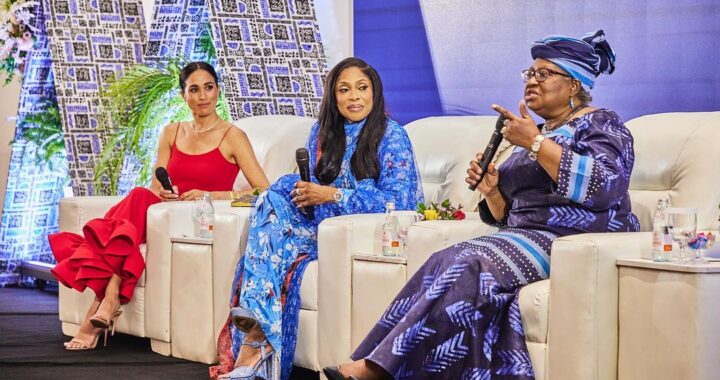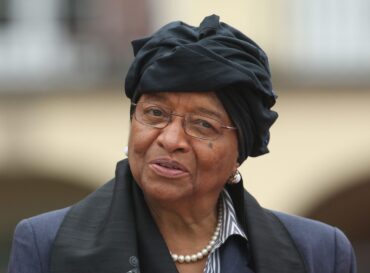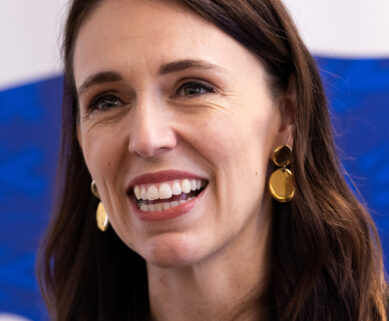In a groundbreaking event in Abuja, Meghan Markle, the Duchess of Sussex, joined forces with Ngozi Okonjo-Iweala, the Director-General of the World Trade Organization, to lead a riveting discussion on women in leadership. The duo’s collaboration marked a significant stride towards empowering women globally, as they delved into the multifaceted challenges that women encounter in leadership roles.
Under the discerning moderation of media personality Mo Abudu, the “Women in Leadership” discussion unfolded as an intimate fireplace chat, fostering an atmosphere of candid dialogue and mutual understanding. Markle, known for her advocacy for gender equality and inclusivity, brought her unique perspective to the forefront, emphasizing the importance of amplifying women’s voices and dismantling systemic barriers.
Okonjo-Iweala, a trailblazer in her own right, shared insights gleaned from her distinguished career, inspiring attendees with her resilience and determination. Together, Markle and Okonjo-Iweala navigated topics ranging from gender bias to the imperative of mentorship and support networks for aspiring female leaders.
Markle spoke passionately about her Nigerian heritage. Embracing her ancestry, she emphasized the importance of diversity and cultural pride in leadership. Markle’s acknowledgment resonated, fostering connections and inspiring inclusivity in the global dialogue on empowerment.
The event served as a beacon of hope and empowerment, igniting conversations and driving momentum towards a more equitable future. As Markle and Okonjo-Iweala illuminated the path forward, their collaboration underscored the transformative potential of women’s leadership in effecting positive change on a global scale. With their voices united, they epitomized the spirit of solidarity and determination that continues to propel the movement for gender equality forward.







